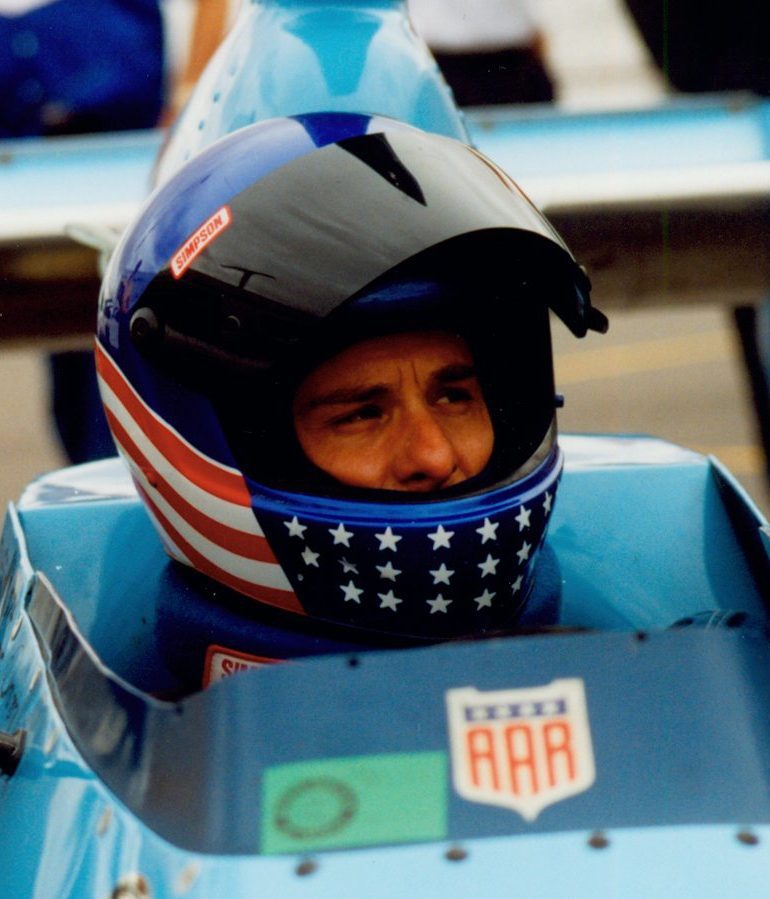Even after almost 40 years of following Formula One, I’m amazed that there are still aspects of the sport that surprise me. Case in point, a recent statement by McLaren’s Lewis Hamilton.
Hamilton was being interviewed about his contract negotiations for 2013. Much to my surprise, one of the areas he’s the most concerned about is whether he can negotiate to keep the trophies that he wins! “Ron [Dennis] and the team have all the trophies in the cabinet and the drivers get replicas,” Hamilton commented to the UK’s Daily Mail. “In a lot of other teams, the drivers get their original trophies. As a racing driver, what you work for and what you want to take home are two things; one is your crash helmet and the other is your trophy. For me, they are priceless.”

Apparently, despite the fact that the winning manufacturer receives a trophy at each race, McLaren also insists on keeping the driver’s trophy as well! Well, we have long lamented that Formula One has shifted the emphasis from the driver to the car…there’s your proof.
You would think that the hardest part about winning at the pinnacle of motorsport would be—err, actually winning the race—not holding on to your winner’s trophy. Yet, you’d be surprised how many trophies are lost to time. I’ve seen a number of Stirling Moss’ trophies go up for sale at auction in recent years, but then again, Moss won so damned many trophies he probably can’t open the front door without three or four falling out into the street.
But occasionally really significant trophies escape as well. A year or so ago, Edsel Ford II made an impassioned plea for any help in tracking down the famed “Punch Bowl” trophy won by his great-grandfather Henry Ford.
As the story goes, by the turn of the century, Henry Ford had already flopped in one business venture to build trucks and was essentially broke. In an effort to raise money, and interest by investors in a new car company, Ford entered the Oct. 10, 1901 running of a sprint race being held by the Detroit Driving Club at Grosse Point, Michigan. The race evolved into a 10-lap, head-to-head race against the leading American driver/constructor of the day, Alexander Winton. For all intents and purposes, Ford was out of his league. Yet, driving the two-cylinder racer he called “Sweepstakes,” Ford was able to outlast Winton to win the race, as well as a $1,000 prize and a gorgeous cut glass “Punch Bowl” trophy.
Winning that race enabled Ford to get back into the manufacturing game which ultimately led to the creation of the Ford Motor Company, so that punch bowl has a deep significance to the Ford family. Apparently, the bowl sat in the family home of Henry and Clara Ford until 1951, when Clara Ford passed away. Upon her death, the family put up much of the furnishings from the Ford home for auction, including, you guessed it, one cut glass punch bowl! Since then, the trophy has disappeared and as Edsel Ford II sadly pointed out, is probably either sitting on a sideboard somewhere with apples in it, or tucked away in an attic.
While Hamilton is justified in wanting to keep his arms around his trophies, the notion of the winner not getting to keep the original race trophy is certainly not a new one. Perhaps racing’s most famous trophy, the Borg-Warner Trophy given to the winner of each year’s Indianapolis 500, is a perpetual trophy that remains in the constant care of the Indianapolis Motor Speedway. Crafted in 1935 by Gorham, to a design by Robert J. Hill, and at a cost of $10,000, the Borg-Warner Trophy bears the bas-relief face of every driver to have won the Memorial Day Classic. While winning drivers are photographed hoisting the trophy, kissing the trophy, and generally groping the trophy, at the end of the day they go home with an 18-inch replica known as a “Baby Borg.” With the original Borg-Warner trophy insured for well over a million dollars, it’s a pretty safe bet that the Hulman-George family won’t be letting that one slip away at an estate sale any time soon.
I feel bad for Lewis Hamilton. Sure, he has a fantasy life we’d all kill for—getting paid big bucks to jet-set around the globe racing with a top-notch Formula One team. But in an era where the drivers input and contribution has been ever more marginalized by computer-assisted this and two-way telemetry that, isn’t it kind of the final kick in the crotch to win a Grand Prix and then have to hand your trophy over to the “Guvnor?”




